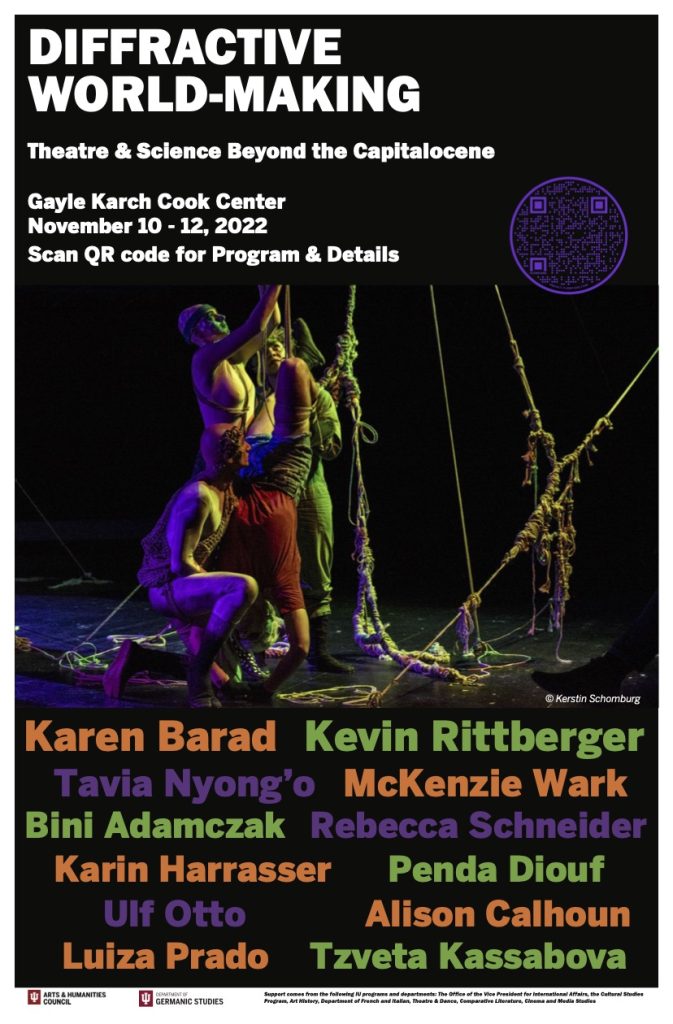München, 5.-7. Juli, 2023
Tagung organisiert von Ulf Otto, Anna Raisich, Luise Barsch
The production of performance has gained renewed attention in recent years. Artistic processes in theaters have come into focus, as well as their social foundations, institutional frameworks and material entanglements.
This has led to an increased adaptation of methodologies from the social sciences. In particular, qualitative methods, most prominently praxeological and ethnographical approaches, have opened up new ways of engaging with theater.
But the expansion of the methodological toolbox is not just that. It reinvents epistemological relations and has lasting repercussions for the subjects and objects of research. While traditionally theater scholars found themselves within the dispositive of theater, as spectators confronting the performance, the move backstage and elsewhere equates to a loss of this privileged position and inevitably leads to an epistemological decentering of performance.
And this in turn provokes a closer look at the practices of research: techniques of description (protocols) and inscription (photographs, recordings) come to the fore, as do the diverse social and material agents that are mobilized to turn fleeting observations into reliably defined and delimited subjects of knowledge.
Accordingly, the aim of the conference is on the one hand, to discuss ethnographical strategies in the domain of theater studies, including their epistemological repercussions – and on the other hand, to take a look back at established writing strategies, taking inspiration from the rich body of critical self-reflection in ethnography: What happens to theater when scholars move backstage, and what can we learn from there about our scholarly selves?
Wir freuen uns über Beiträge von Wissenschaftlern aller Karrierestufen – sowohl Vorträge von etwa 20 Minuten Länge als auch Poster-Präsentationen von Projekten im Frühstadium mit einem Zeitrahmen von 10 Minuten sind erwünscht. Wir sind bestrebt, einen Raum für produktiven Austausch, eingehende Diskussionen und gemeinsame Perspektiven zu schaffen.
Bitte reichen Sie kurze Abstracts + Bio ein (300 words max. both).
Deadline für die Abstracts: 15.12.2022
Zusage erhalten Sie bis: 15.1.2023
Kontakt: gewerke@lrz.uni-muenchen.de
Die Konferenz wird in erster Linie vor Ort in München stattfinden, aber wir werden für Teilnehmer, die nicht persönlich anwesend sein können, Streaming und vollständige Online-Panels anbieten. Die Kosten für Reise und Unterkunft werden für die Vortragenden übernommen. Eine anschließende Publikation ist geplant.
Die Konferenz ist Teil des Forschungsprojekts Die Kunst der Gewerke. Eine Praxeographie des Theaterapparats gefördert von der

